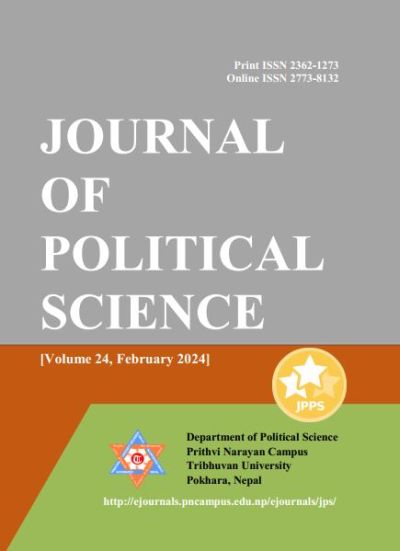The Politics of Faith: Religious Nationalism and Nepal's Democratic Landscape
DOI:
https://doi.org/10.3126/jps.v24i1.62854Keywords:
Democratization, ethnic identity, multiculturalism, pluralism, religious nationalismAbstract
Religious nationalism is a significant force in politics that has a profound impact on a nation's democratization process. This research focuses on the case of Nepal and aims to explore the historical context of the country to understand the influence of religious identity on democratization. Instead of relying on public opinion surveys, the study employs a qualitative approach, analyzing historical records and case studies. The research examines the role of religious actors in shaping the political landscape and highlights the challenges posed by religious nationalism to democratization. It emphasizes the need for institutional resilience and legislative measures to protect pluralism and inclusivity. The research concludes that religious nationalism emerges as an ideology and an identity-driven political force that will shape the course of Nepal’s democratization, requiring a deep comprehension of its consequences and actions to strengthen the country for the future.
Downloads
Downloads
Published
How to Cite
Issue
Section
License

This work is licensed under a Creative Commons Attribution-ShareAlike 4.0 International License.




